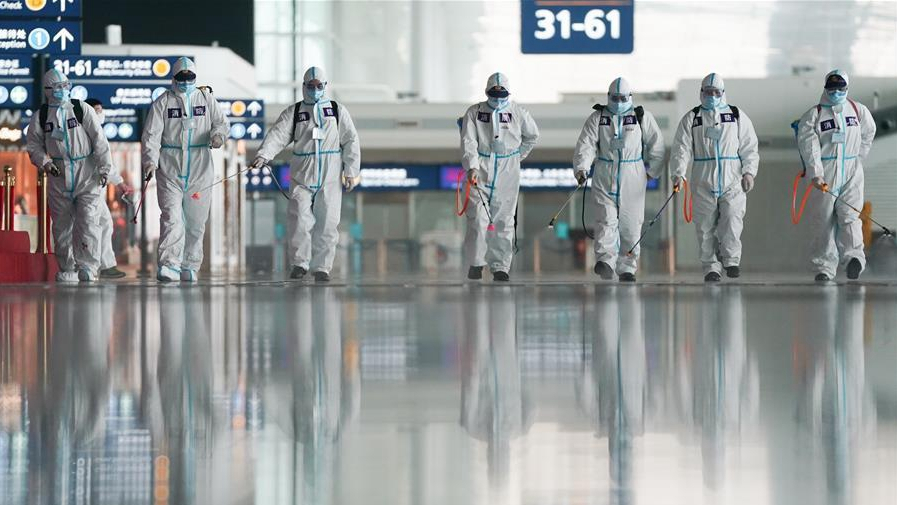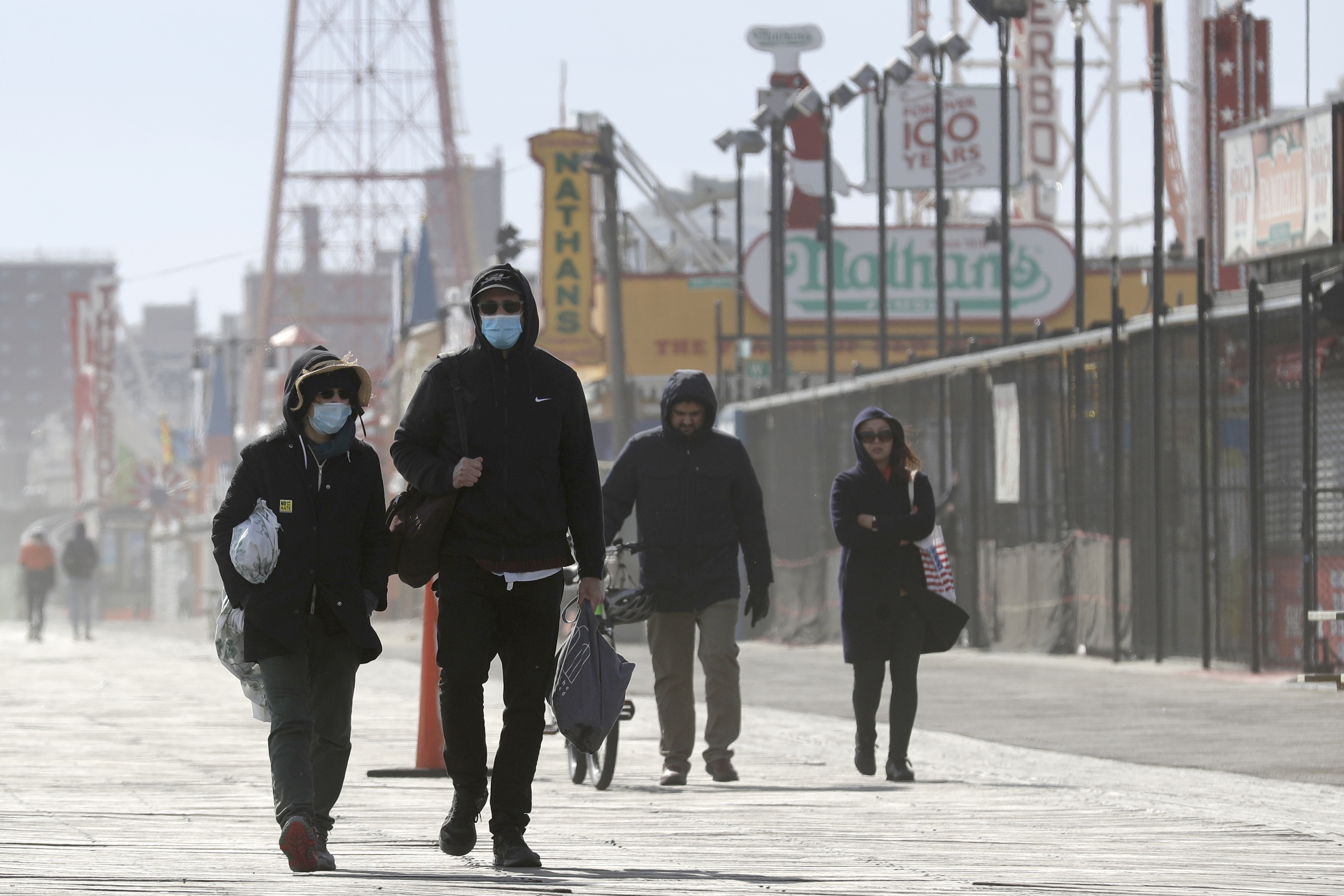
Editor's note: Azhar Azam works in a private organization as a market and business analyst and writes about geopolitical issues and regional conflicts. The article reflects the author's opinions and not necessarily the views of CGTN.
The COVID-19 pandemic is such an enormous threat to humankind and the global economy that it obliges all rivals to shelve their rivalries, all nationalists to forego nationalism and all the protectionists to suspend protectionism at least temporarily and embrace a stronger, unvarying international cooperation for the protection of their citizens and economies.
Despite populist backlash from some Western quarters, it is still an era of breakneck globalization that has lifted the living standards of millions of people. While the phenomenon continues to connect people and make them dependent on each other for their economic and technological growth through multifaceted cooperation, it also prevents some aggressive and dominance-seeking countries from asserting their hegemony or impose the totalitarian decisions on other sovereign nations.
Global cooperation – pooling wisdom and sharing experiences – is, therefore, the one-stop solution for the international community to put forward a concerted and determined international response to the novel coronavirus outbreak in an open and transparent manner founded on mutual understanding.
A report titled "Strengthening multi-level cooperation to fight the pandemic" published by the Center for China and Globalization noted that as COVID-19 transforms into a global crisis affecting virtually every country, its impact on public health would have far-reaching implications ranging from individual livelihoods to political and economic structures.
Based on its findings, the report lined up a series of recommendations, including activating multilateral platforms such as G20, supporting the World Health Organization (WHO), allowing the WHO to play a greater role in global cooperation and establishing a governance mechanism for international coordination on public health measures and protecting the global value, supply and industrial chains.
Recommendations also urged China and the U.S. to strengthen dialogue and reach consensus on trade in medical supplies, support the World Trade Organization (WTO) to play an effective role in responding to the epidemic by promoting trade facilitation for emergency goods and cooperation across supply chains and support multinational cooperation on drug and vaccine development.
Although U.S. President Donald Trump lately scorched the WHO, labeling the international health body "Chinese-centric" and accusing it of giving "faulty recommendation," as well as threatening to withdraw from the WTO over losing "so many cases," the role of both institutions is crucial in protecting human lives initially from the pandemic and then from the economic consequences in a post-coronavirus world.
While Trump's criticism of the WTO is a blunt effort to influence the organization and coerce its appellate tribunal to resolve cases in the U.S.' favor, his disapproval of the WHO and accusations against China for camouflaging the numbers by some other U.S. officials, lack both evidence and prudence.
In an interview, the Republican Senator Rick Scott claimed that the American public will want to boycott Chinese goods after the pandemic, as they "clearly killed Americans with their actions." In his prior article, he called for a congressional investigation into the WHO for serving "as a puppet to for the Chinese Communist Party."

Pedestrians walk on the boardwalk at Coney Island in New York, U.S., April 12, 2020. /AP
Pedestrians walk on the boardwalk at Coney Island in New York, U.S., April 12, 2020. /AP
The U.S. officials' reproof of China and the WHO is detrimental to global cooperation in defeating COVID-19. They are overtly trying to politicize the outbreak by deliberately overlooking the fact that China is, so far, the only country that has effectively controlled the pandemic and prevented its resurgence despite being terrifically gripped by the virus.
Since the start of the outbreak, the WHO has also worked hard, helping countries to build their capacity to prepare and respond to the outbreak. The WHO has provided accurate information and fought the "infodemic" through the issuance of technical guidance, arranged training and mobilization of the health workers, accelerated research and development, and is ensuring that critical supplies reach the frontline health workers.
Professor of political science at Georgia State University Dr William Long acknowledged that "China, for its part, gave more timely notice of the outbreak," and the WHO too "made a timely finding" of the disease.
But Washington's ostensible belief that it is the so-called custodian of the world and thus has the right to dominate all the countries and international organizations is the real hitch in the fruition of the global cooperation. Though the Trump administration has long been wary of a trade deficit with China, it now wants Beijing to direct all the medical supplies to Washington.
The attitude shows that for the U.S., the lives and health of its people are more important than those who live in Africa, Asia and even Europe. However, China's donation of medical items, which to date have been sent to a total of 127 countries and four international organizations, emphasize its uniform approach to shield all the nationalities without any favoritism.
China's cooperation with the world during the pandemic, including the deployment of 13 medical teams to 11 countries and donation of 20 million U.S. dollars to the WHO, has spelled out the importance of global cooperation and the utility of globalization.
While some U.S. politicians, governors and congressmen have cried out about the acute shortage of personal protective equipment for doctors and nurses, it is imperative to know that China's industrial capacity has already exceeded the pre-pandemic production of manufacturing 200 million masks daily. Solving the imbalance in demand and supply can only be achieved through bilateral cooperation.
The scale and unforeseen consequences of the COVID-19 pandemic can only be contained through altruism and global cooperation among all nations and international institutions. However, a cause as big as the coronavirus necessitates that the U.S. abandon its catty and splenetic behavior toward China.
(If you want to contribute and have specific expertise, please contact us at opinions@cgtn.com.)